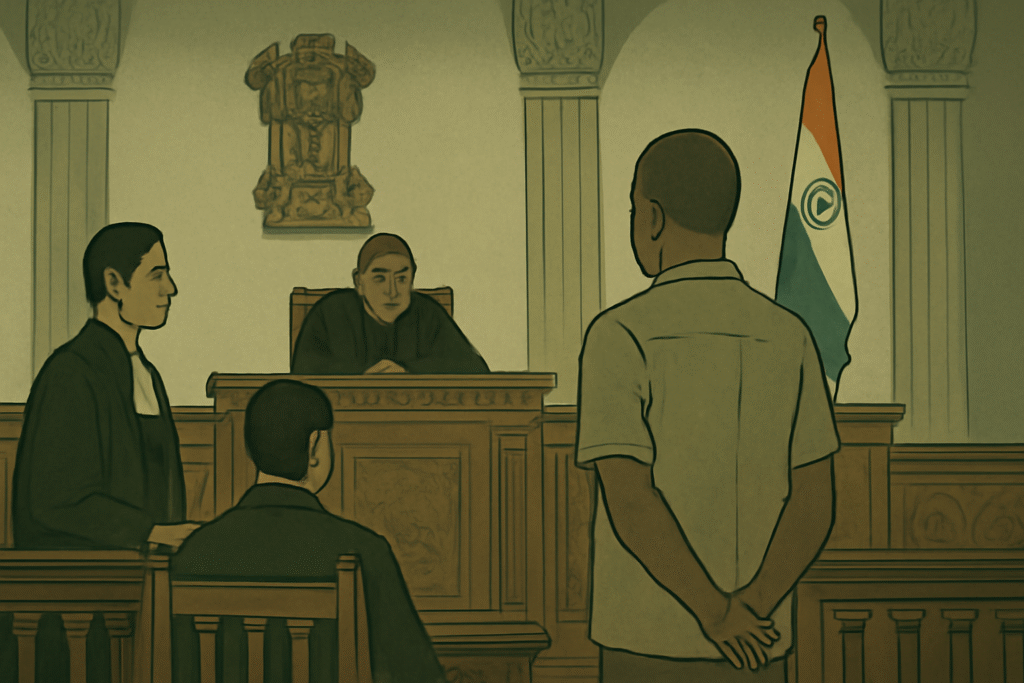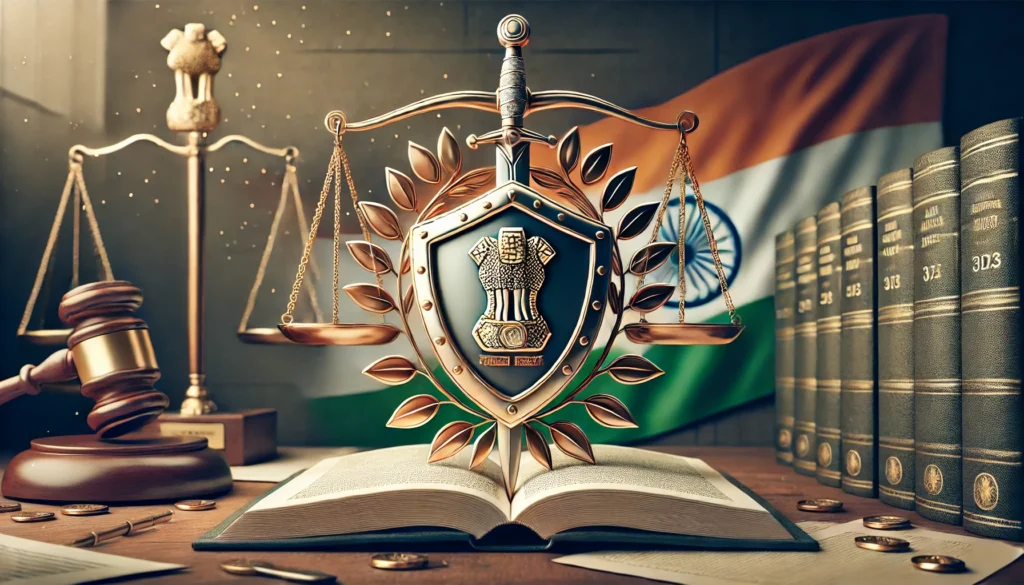Published on 07th July 2025
Authored By: Palak Parashar
Bharati Vidyapeeth Deemed to be University, New Law College, Pune
Introduction
“Fiat justitia ruat caelum” (Let justice be done though the heavens fall). Today, justice and equity have interdependently morphed to revolve around internet access. The internet was once a luxury, but is now an absolute requirement to exercise fundamental constitutional rights such as freedom of speech and expression, right to education, and even the right to livelihood. This transformation was greatly accelerated with the outbreak of COVID-19, which turned the internet into a necessity for healthcare, work, education and governance.
This article will investigate whether access to the internet qualifies as a fundamental right in the context of Indian constitutional law. It will study the legislative and judicial history of the internet in India, survey relevant case law, consider international frameworks and jurisprudence on internet access, and assess the consequences of establishing internet access as a fundamental right.
Constitutional Structure and Derivative Rights
Part III of The Constitution of India describes the fundamental rights of the citizens. The right to internet access is not specifically mentioned, however, the theory of jus naturale (natural law) along with the judicial activism framed through interpretation enable the use of Articles 19 and 21 of the constitution in the context of internet access.
The provisions of Article 19 are the right to freedom of speech and expression and the right of a citizen to practice any profession or to carry on any occupation, trade or business. All these rights are now being exercised to a greater extent with the use of internet. In the absence of internet connectivity, these constitutional assurances will have a far lesser impact than, if they were to be meaningful in practice.
Article 21 which also along with other bilateral rights broadly defines the scope of freedom of life and personal liberty which also includes dignity, education and privacy. The Supreme court landmark case Maneka Gandhi v. Union of India, AIR 1978 SC 597 held that the right to life unsurprisingly implies all in existence that make life of an individual pleasant. The desirable interpretation along with mischief rule enables filling of the gaps through right which are essentially needed to allow other fundamental rights to be enjoyed.
Aside from Articles 19 and 21, Article 14 is also linked with the internet access.The article 14 provides for equality before the law. The digital divide has an unjust and disproportionate effect in rural areas, amongst women and marginalized groups, disturbing the balance between their access to opportunities and information. Identifying access to the internet as a derivative of Article 14 would guarantee the state responsibility to bridge this gap by affirmative policies. Further, the Directive Principles of State Policy (Part IV) such as Article 38 (encouragement of welfare of people) and Article 39 (certain principles of policy) uphold the requirement of equal access to resources. When these are harmoniously read with Part III rights, a strong constitutional argument can be mounted to make universal, low-cost internet access necessary for an equitable social order.
Judicial Recognition in Indian Courts
The Anuradha Bhasin v. Union Of India, (2020) 3 SCC 637 case, which the Supreme Court dealt with, encompassed issues with the internet suspension in Jammu and Kashmir. The Court ruled that freedom of speech and expression alongside the freedom to practice any profession (Articles 19(1)(a) and 19(1)(g)) are based on having internet access. Even though the judgment did not fully state that access to the internet is a fundamental right, it maintained that there are minimum acceptable controls (proportionality test) and limitations (bound by time) on those regulations.
The Kerala High Court propounded the right of access to the internet as part of the right to education together with right to privacy under Article 21 in Faheema Shirin v. State of Kerala, 2019 SCC OnLine Ker 17348. The court went on record stating that the students’ right to education guarantees them internet access, thus sunlight and reason cannot be obscured by clouds.
The above-mentioned decisions demonstrate the judge made law trend where the emphasis has been placed on internet access as enabling tool and which has now been increasingly regarded as part of constitutional obligations by the judiciary.
International Law and Comparative Constitutionalism
With regard to internet accessibility, there seems to be a growing acceptance of it being deemed as a fundamental human right.
Disrupting of the access to internet services is globally considered a violation of the human rights. This was addressed in a UN Human Rights Council resolution A/HRC/32/L.20 (2016). The resolution had also emphasized the need for safeguarding offline rights in an online environment.
Finland has provided its citizens with the 2010 legislation, which provides them a legal right to broadband access. Estonia, which is known for its digital innovations, treats internet access as a basic service. The Constitutional Council of France also recognized internet access as a fundamental human right in its ruling Decision No. 2009-580 DC. The Supreme court of Costa Rica also ruled in its 2010 decision No. 2010-10540 that internet access is paramount to the right of information and the freedom of expression.
The General Comment No. 34 of the Human Rights Committee in respect of the ICCPR (International Covenant on Civil and Political Rights), to which India is a signatory, reaffirms that States have an obligation to promote media diversity and availability, including across the internet.
Comparative constitutional jurisprudence supports this transition. The Kenyan High Court, in Katiba Institute v. Communications Authority of Kenya (2020), declared that internet shutdowns are an infringement upon freedom of expression under Article 33 of their Constitution. The South African Constitutional Court, in its cases construing Sections 16 and 36, has similarly recognized the digital aspect of expressive freedoms.
While international treaties per se are not directly enforceable in India unless absorbed into domestic law, Article 51(c) of the Indian Constitution commits the state to promoting respect for international law. In addition, Indian courts have a long tradition of deriving interpretative insight from international norms, especially in developing Article 21. To recognize internet access as implicit in the right to life would bring India into line with evolving global constitutional standards.
Internet Access and the Digital Divide: Equality and Article 14
India has previously imposed internet shutdowns in some places for reasons like public safety or law and order. These shutdowns often do not meet the standards of transparency and breach the principles of legality, necessity, and proportionality, which were established under the case of Anuradha Bhasin in 2020
The Information Technology (Temporary Suspension of Telecom Services) Rules, 2017, promulgated under the Telegraph Act, have been faulted for unleashing excessive executive discretion with minimal judiciary oversight.
The absence of widespread internet penetration in India has resulted in a digital divide along the axes of caste, gender, class, and geography — involving the right to equality under Article 14 of the Constitution. The disparity in access to digital infrastructure leads to a situation where urban, wealthier sections of society have seamless access to education, e-governance, and job opportunities, while disadvantaged groups remain digitally excluded.
In State of Kerala v. Sudhakaran (1994), the Supreme Court held that equal access to public services forms part of the very essence of Article 14. Transposing this to the digital world, if government services, education websites, and judicial infrastructure (including virtual hearings) go online, the withholding of access to the internet can constitute indirect discrimination. The doctrine of substantive equality — recognized in Navtej Singh Johar v. Union of India (2018) — requires the state to make positive action to redress such structural inequalities.
Also, the digital divide has increased since the pandemic, with courts operating virtually, online classes becoming the norm, and welfare services such as CoWIN and DigiLocker becoming default interfaces. Unless digital access is made universal, moving towards online governance threatens to entrench current social hierarchies, thereby contravening both Article 14 and Article 21.
The Internet’s Role in Education, Health, and Governance
The internet now increasingly plays a transformatory role in the principal sectors—particularly education, healthcare, and public service provision. Throughout the pandemic induced by COVID-19, digital classrooms became ubiquitous, revealing the harsh truth of educational exclusion faced by students without access to the internet. Likewise, telemedicine projects, essential in distant and underserved regions, depend mostly on digital infrastructure. Being unable to connect digitally deprives the unconnected not just of information but also of vital services.
Governance also has moved toward digitization, and benefits such as Aadhaar-linked benefits, digital grievance redressal portals, filing RTIs online, and virtual court proceedings are the new normal. Citizens who lack access to the internet are de facto excluded from their democratic rights and benefits under government schemes. Hence, access to the internet is not just a technical utility—it is a means of operationalizing constitutional pledges and sustainable development targets. Denying such access threatens the right to equality, information, and meaningful public participation in democratic life.
Digital Literacy and Inclusion as Prerequisites
Despite increased access, effective use of the internet still necessitates digital literacy. Without knowing how to critically comprehend, navigate, and use online tools, marginalized communities could be perpetually locked out of the digital public sphere. The National Digital Literacy Mission reports that few rural homes have any practical knowledge of internet use.
This creates a chasm that expands inequality and negates legislative acknowledgment of internet access as a right unless paired with robust investments in digital literacy initiatives. Government programs need to be directed toward vernacular content, user-friendly interfaces, and focused training, in particular among women, the elderly, and economically backward communities. The legal recognition of access must hence be interpreted not merely in terms of physical connectivity but also functional inclusion—making sure that users are able to utilize the internet meaningfully to assert their rights, access opportunities, and exercise freedom of expression.
Regulatory Oversight and the Role of TRAI
The Telecom Regulatory Authority of India (TRAI) is crucial to digital access policy formation, but its regulatory framework is still predominantly market-based instead of rights-oriented. Although TRAI’s 2016 Consultation Paper on Free Data and the 2018 recommendations regarding public Wi-Fi networks attempted to spur access, there is no legally enforceable requirement for service providers to provide universal service availability other than rural telephony under the USOF (Universal Service Obligation Fund).
A rights-oriented framework would necessitate TRAI to move beyond economic regulation to a more general socio-legal one, integrating constitutional values into tariff regulation and licensing conditions. It also needs to coordinate with the Department of Telecommunications (DoT) so that any internet shutdown aligns with constitutional protections after Anuradha Bhasin. A statutory regime — possibly in the form of a Digital Access Rights Act — would legally authorize TRAI to implement fair digital access as a justiciable right, particularly for students, disadvantaged communities, and poor households.
Pros and Cons of Legal Recognition
- Arguments For:
- Enabler for Fundamental Rights: Enabler for rights under Articles 19 and 21.
- Democratic Participation: Enabler for informed citizenry and accountability.
- Socio-Economic Equity: Reduces marginalization by improving access to education, employment, and government schemes.
- Arguments Against:
- Implementation Problems: Infrastructure shortage in rural areas.
- Separation of Powers: Fears of judicial encroachment into executive policymaking
- Security Risks: Risk of misuse for cybercrime and propaganda.
These valid concerns can be addressed by statutory protection and appropriate regulations.
Conclusion
Ubi jus ibi remedium (Where there is a right, there is a remedy). Living in a digital era , we greatly rely on internet access for various essential aspects of life, such that deprivation of internet access has become an equivalent to exclusion from public life. Not necessarily articulated in the Constitution, the entitlement to internet access is something that should be recognized as a derivative fundamental right.
Recommendations
- Legislative Action: Parliament can pass a Digital Rights Act legalizing access to the internet as an assured right.
- Judicial Clarity: The Supreme Court can, in subsequent cases, render a clear judgment on the nature of internet access, making it mandatorily clear.
- Policy Reform: Spend on rural reach, digital literacy, and last-mile infrastructure.
- Safeguards: Specify limits on permissible restrictions under Article 19(2) and proportionality.
Observance of internet access as a human right conforms to the constitutional ideals of liberty, equality, and dignity. It signifies an evolving, living Constitution that addresses modern realities.
References
- Anuradha Bhasin v. Union of India,(2020)3 SCC 637.
- Faheema Shirin R.K. v. State of Kerala,2019 SCC OnLine Ker 17348.
- Maneka Gandhi v.Union of India, AIR 1978 SC597.
- UN Human Rights Council, Res.A/HRC/32/L.20(July 1, 2016).
- Information Technology(Temporary Suspension of Telecom Services) Rules,2017.
- Constitutional Council Decision No. 2009-580 DC (France).
- Supreme Court of Costa Rica, Decision No. 2010-10540.
- Internet and Mobile Association of India (IAMAI), Digital in India Report 2023.




